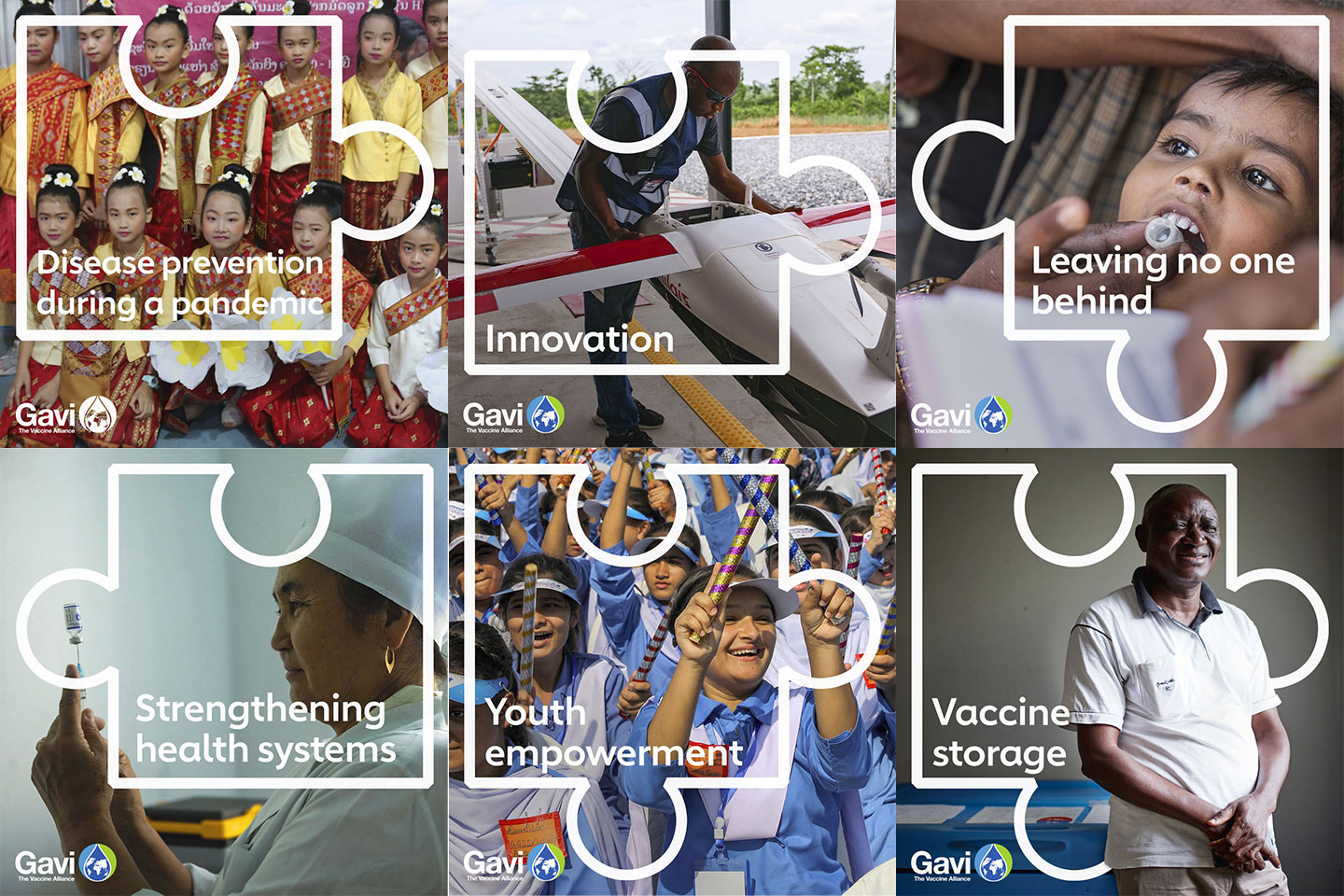The COVID-19 pandemic has created new barriers to routine immunisation, but Gavi and its Alliance partners have spent the past 20 years working to address challenges to delivering life-saving vaccines to children in more than 70 countries around the world. Together, we have vaccinated more than 760 million children. Read on for a celebration of our Alliance partners, in honour of World Immunization Week.
Immunisation campaigns require a coordinated approach that factors in the unique challenges of each country. For example, in areas with densely populated urban settlements, there may be challenges with communicating the importance of vaccines, so social mobilisation activities are required. Conversely, many Gavi-supported countries have very remote regions that demand a new approach to vaccine delivery, like using autonomous drones to efficiently deliver medical supplies.
The COVID-19 pandemic poses numerous challenges to routine immunisation, putting millions at risk of a resurgence of vaccine-preventable diseases. Physical distancing, lockdown measures, and vaccine shortages due to border closures and disrupted air travel are leaving many communities vulnerable to further outbreaks. Gavi is making health system strengthening grants more flexible to allow countries to reallocate funding towards their COVID-19 response, as well as working with our partners to continue immunisation campaigns where possible. The immunisation infrastructure that Gavi has helped build over the past two decades is also being used to help fight the pandemic.
As a public-private partnership, Gavi’s impact draws on the strengths of its core partners to find innovative ways to address and overcome a broad range of challenges as part of our mission to leave no one behind. From working with countries to identify the issues, to collaborating with core Alliance partners to address them and building on the expertise of our private sector partners, together we can protect children from vaccine-preventable diseases.
During World Immunization Week, we are shining a light on the different pieces of the puzzle that have formed together to help the Alliance save more than 13 million lives over the past 20 years – and that will help the world’s poorest countries protect against the new threat of COVID-19. We are looking at six different themes across the six different regions in which Gavi operates to highlight just some of the core aspects of our mission and operating model.
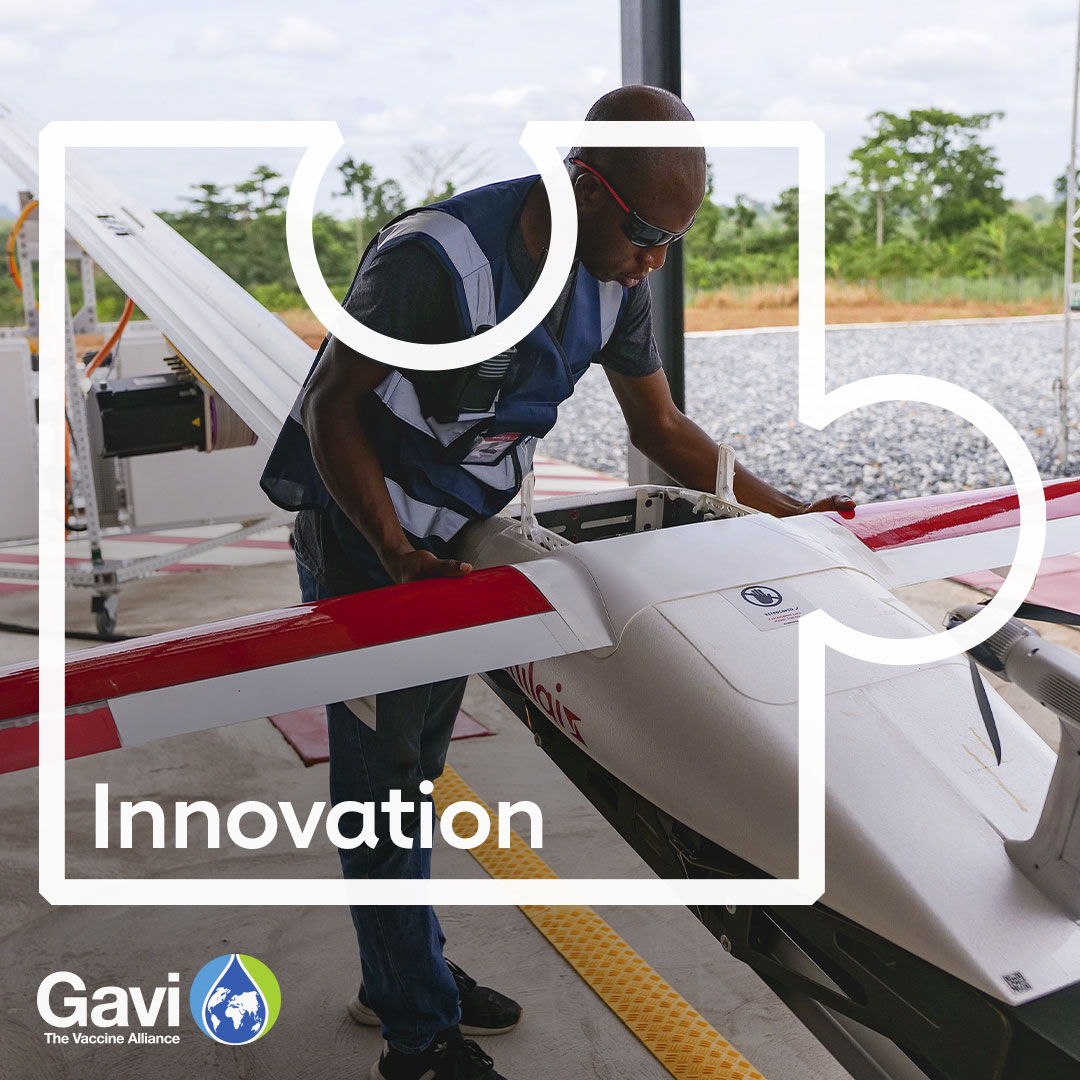
How Gavi’s partnership with Zipline drives innovative medical delivery in Africa
In 2016, the Government of Rwanda considered hiring a drone delivery startup called Zipline to address the health supply chain problems that prevented hard-to-reach hospitals from receiving scarce blood products in urgent circumstances. Gavi saw the potential and formed a partnership with UPS, Zipline and the Rwandan government to launch the world’s first national drone delivery service to provide units of blood, medical supplies and vaccines to remote communities to empower health workers and save lives.
As of March 2020, Zipline had completed more than 27,000 drone deliveries in Rwanda, and Gavi’s partnership with Zipline and UPS had expanded to Ghana to serve 2,000 health facilities with orders of more than 9,000 units of vaccines and 26,000 units of medicine.
To help tackle COVID-19 in Ghana, Zipline has begun drone delivery of COVID-19 test samples from remote health facilities to laboratories for testing. As of 17 April, Zipline had delivered more than 700 units of personal protective equipment (PPE) in Ghana and Rwanda, including masks and gloves.
The use of autonomous drones ensures on-demand delivery of commodities, precisely where and when they are needed, while helping to limit physical contact and mitigate the spread of the virus.
Why Gavi’s work to improve vaccine storage is vital to reaching every child
Seven years ago in Haiti, Joseph Mesura, then 65 years old, would carry a nine-kilogramme propane cylinder for six hours across fields, rivers and up rocky slopes once a month to power a refrigerator that maintained vaccines at their prescribed temperature. Without this exhausting journey, local children in the rural village of Taifer couldn’t be immunised against life-threatening illnesses.
This challenge is not unique to Haiti; it affects health facilities across the globe that struggle to prevent vaccines being corrupted by the heat. The network of fridges, cool boxes and sensors used to store and transport vaccines, keeping them at optimal temperatures, is known as the cold chain. Unless poorer countries can afford to purchase and maintain cold chain equipment, they risk the lives of their people.
So reaching every child in Haiti with life-saving vaccines started with a fridge. In 2016, the Government of Haiti applied for Gavi support to replace obsolete propane gas fridges with solar panel refrigerators -- making it easier for health workers like Joseph to protect the next generation.
To date, Gavi has helped provide 384 solar refrigerators in Haiti, with hundreds more due to be installed this year.
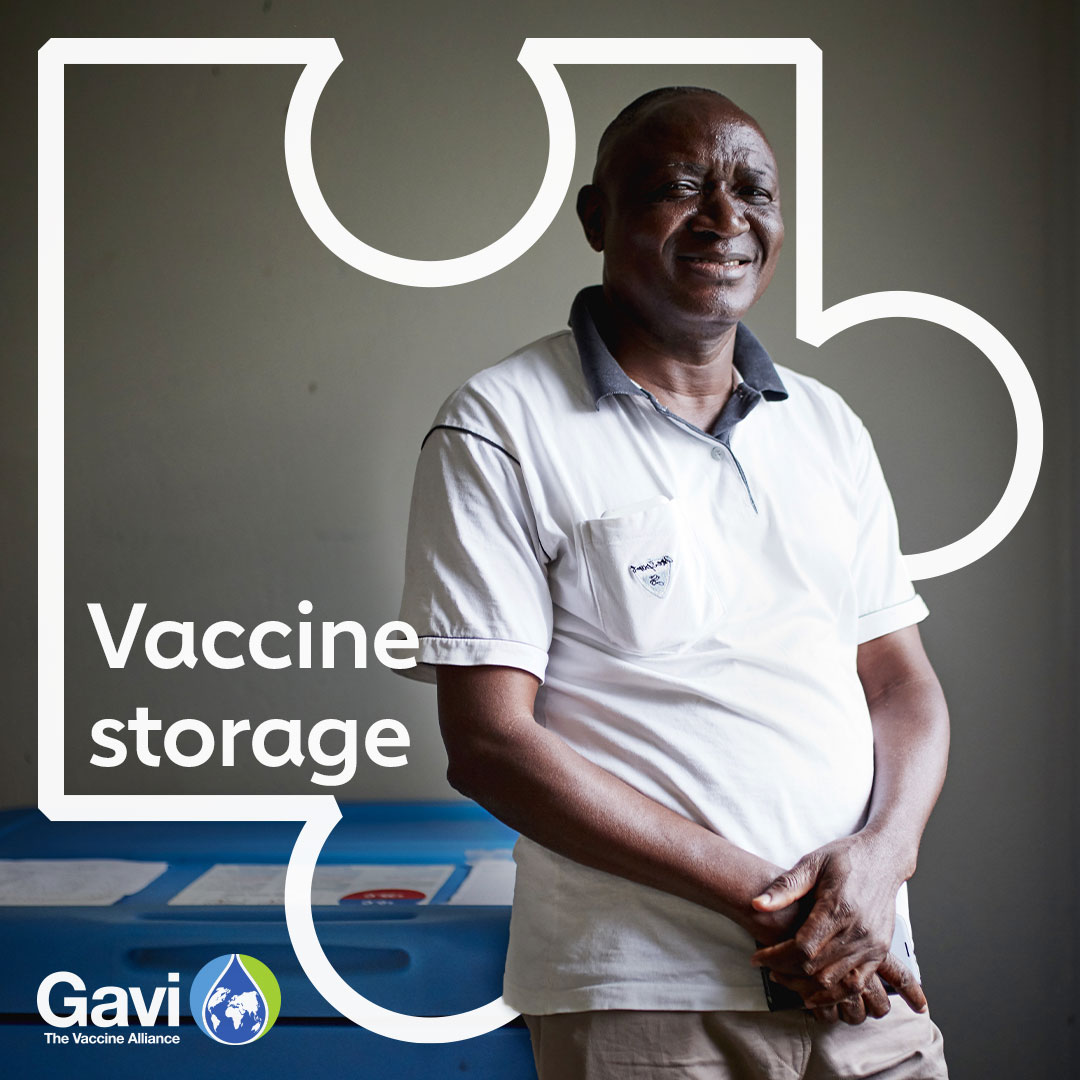
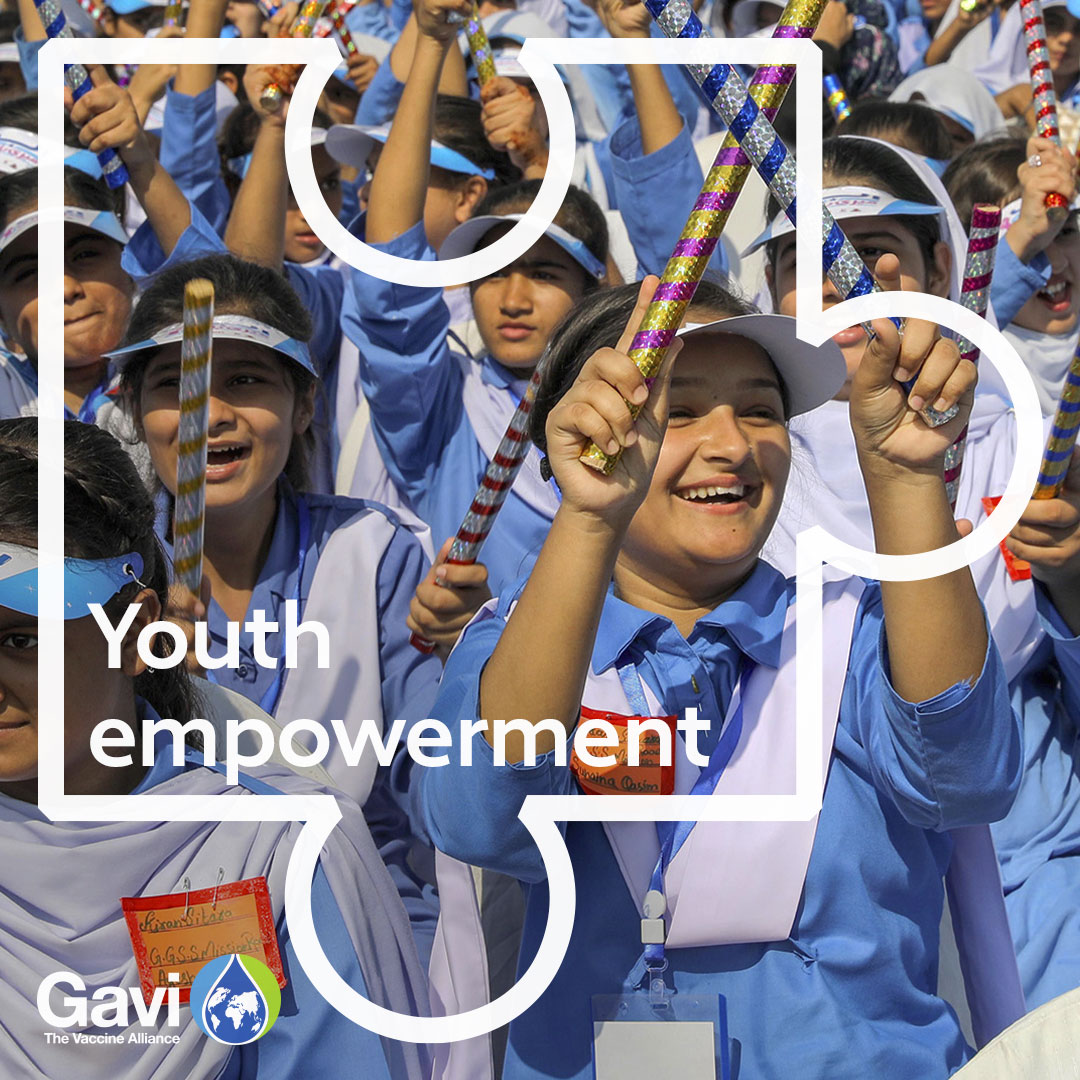
How youth leadership is building trust in immunisation
Increasing awareness and trust in vaccines often begins with outreach programmes and other social mobilisation activities. One effective method is to create and train a network of youth ambassadors to inform their community and promote local ownership of immunisation.
In November 2019, Pakistan showcased the benefits of empowering adolescent girls by gathering 10,000 girls from 58 schools in Karachi, alongside representatives from the government, the World Health Organization and Gavi.
Through the Kiran Sitara programme’s Ab Meri Bari Hai! (Now It’s My Turn!) event, teenage girls learned leadership skills, received basic health care training and became ambassadors for immunisation.
Dr. Subhash Chandir, Director for Maternal & Child Health at Interactive Research & Development (IRD), which runs the Kiran Sitara programme, said: “We are leveraging the potential of Kiran Sitaras to be lifelong community advocates for immunisation and to realise our goal of achieving equity and universal immunisation coverage in Pakistan, leaving no one behind.”
How health systems are maintaining immunisation services during the COVID-19 pandemic
The COVID-19 pandemic is putting the world’s health systems to the test. With the majority of countries channelling their resources to their COVID-19 response – striving to contain further transmission and treat those infected – the maintenance of other routine health services, such as immunisation, may be postponed or interrupted. Consequently, at least 13.5 million people in 13 of the world’s least-developed countries will not be protected against diseases from viruses like measles, polio and human papillomavirus (HPV), with millions more likely to follow.
The Lao People’s Democratic Republic (Lao PDR) has experience in responding to epidemics, but COVID-19 brings forth specific challenges to their health system – for example, acquiring materials for testing and treatment, and personal protective equipment (PPE) for health workers.
Despite interruptions to the planned schedule due to COVID-19, the Lao PDR successfully introduced the human papillomavirus (HPV) vaccine into the country’s national immunisation schedule. On 4 March, the Government of Lao PDR, together with Gavi, UNICEF and the World Health Organization, launched a National HPV Immunization campaign to reach 360,000 girls, aged between 10–14 years old, across all provinces. To protect against COVID-19 infection whilst ensuring HPV vaccine uptake, vaccination sessions introduced safety precautions, including physical distancing measures, outreach sessions, vaccination posts in villages and house-to-house visits.
For widespread awareness about the National HPV Immunization campaign, planned HPV communication activities were carried out in English and Lao, including social mobilisation, advocacy and mass media broadcasts. To mobilise communities effectively, UNICEF and Lao PDR developed a leaflet for village-level influencers outlining their roles as HPV vaccine advocates, providing them with key messages and frequently asked questions about the HPV vaccine to better inform their communities.
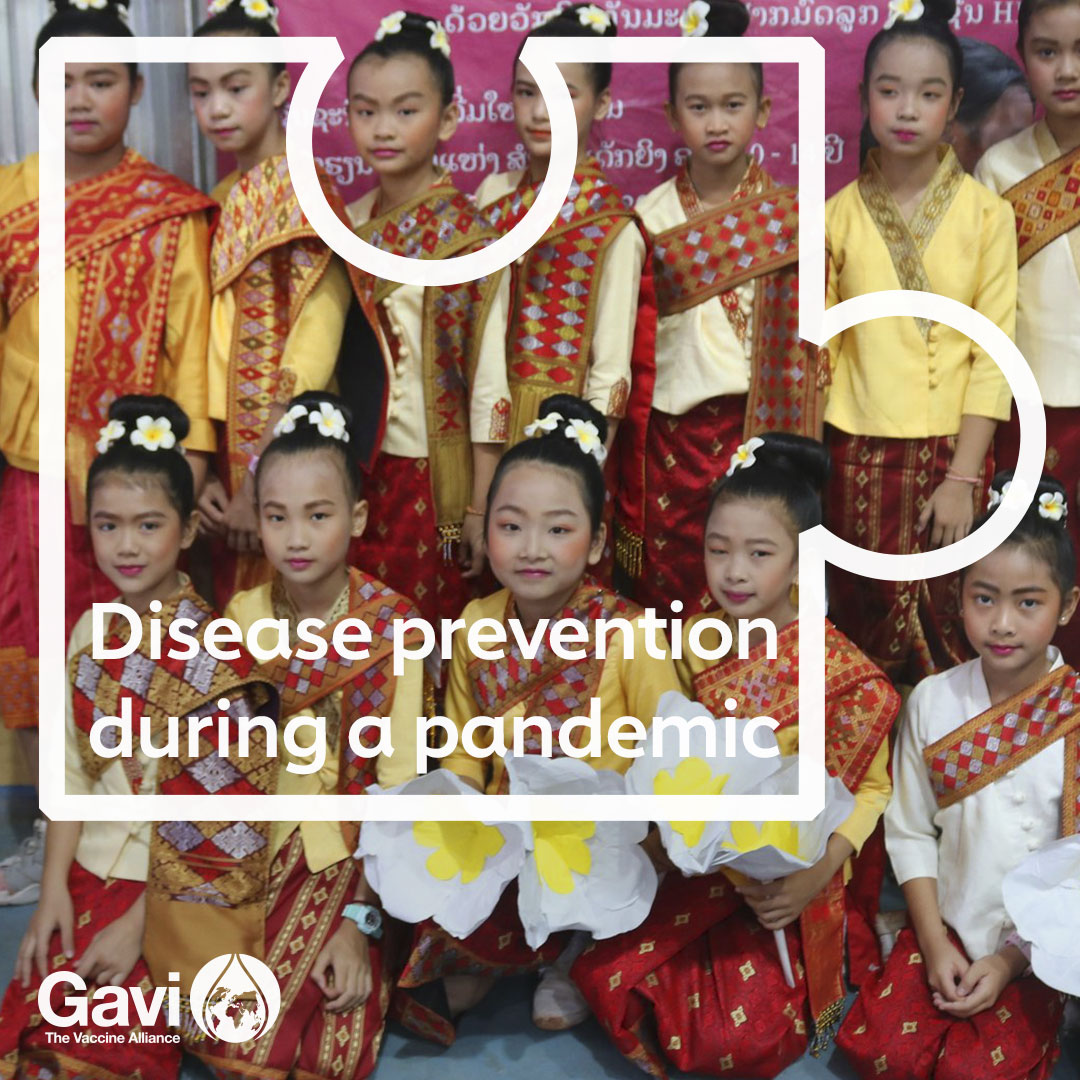
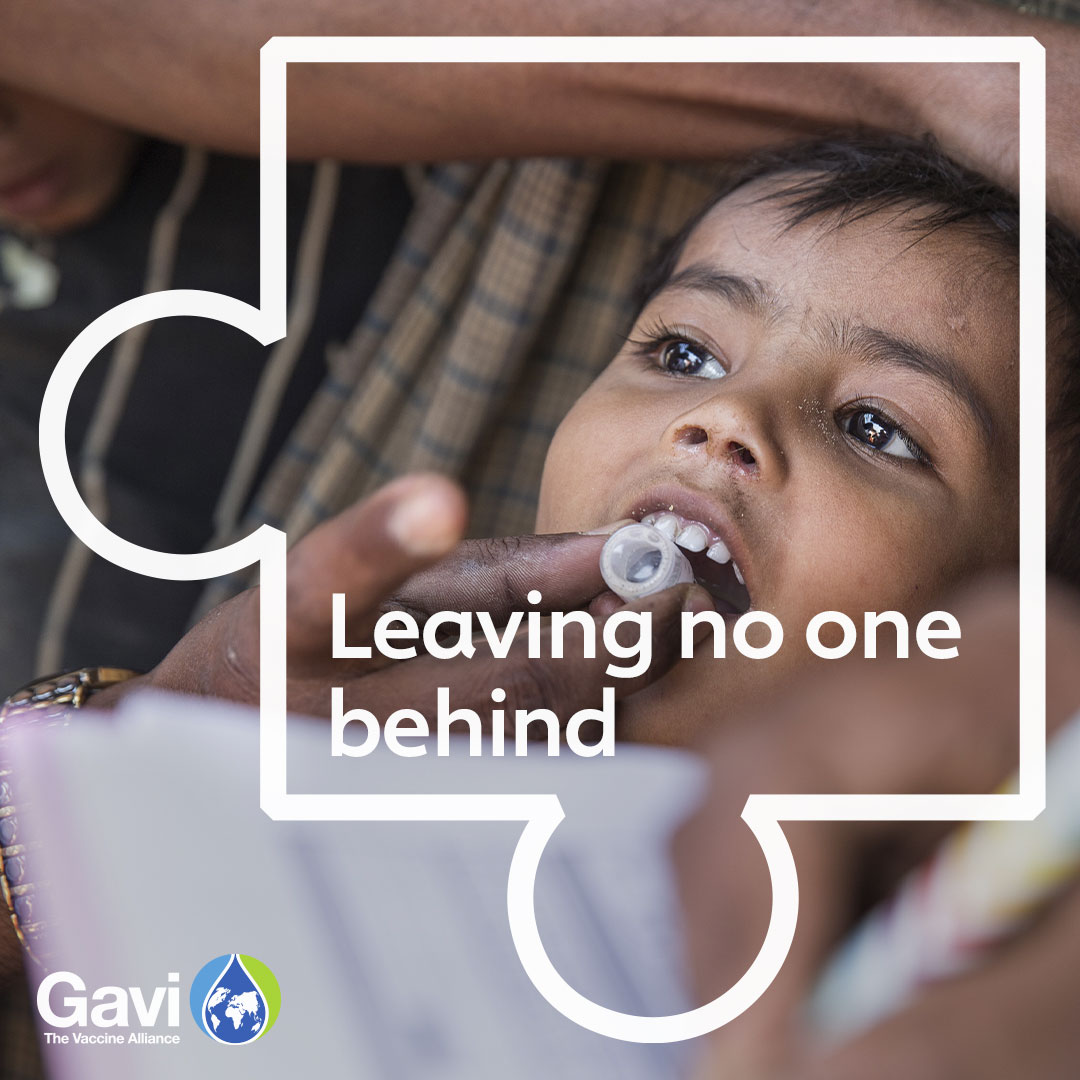
Why tailored responses are crucial to protecting vulnerable groups from outbreaks
During national and global health emergencies, vulnerable groups such as displaced people, including refugees, are often the most affected. In communities with limited access to health care and clean water, coupled with poor sanitation and overcrowding, measures to reduce the spread of COVID-19, such as frequent handwashing and physical distancing, may not be possible.
In Cox’s Bazar District, Bangladesh, nearly 860,000 Rohingya refugees have been living under a complete lockdown since 9 April. With only 10 intensive care unit (ICU) beds in Cox’s Bazar, feelings of fear and panic are spreading among the residents of the largest refugee settlement in the world, as they consider what to do in the event of an outbreak.
This is just one example of how people in Gavi-eligible countries across the globe are facing specific challenges to protecting themselves against COVID-19 infection. To help address these needs, Gavi is providing support towards countries’ COVID-19 National Preparedness and Response Plans, leveraging inputs from all the Alliance stakeholders in a complementary fashion. Along with the Secretariat, United Nations partners and civil society organisations, Gavi’s expanded partners continue to support Ministries of Health in their COVID-19 response efforts. As part of Gavi’s COVID-19 flexibilities, expanded partners can reallocate savings from any activities anticipated to be delayed or cancelled due to the pandemic.
These adapted responses are supporting Gavi countries while global health stakeholders are working around the clock to ensure the development and roll-out of COVID-19 vaccines is a top priority, and that no one will be left behind in accessing the vaccines once they become available – including displaced people.
How the Alliance strengthens health systems in response to COVID-19
Strengthening health systems is a core component of Gavi’s work and is already helping countries face the challenges posed by COVID-19. The pandemic has strained global health systems as they struggle to adapt to new infection prevention and control (IPC) measures. Health workers are on the front lines in implementing IPC strategies to prevent COVID-19 transmission. In order to keep health workers and their patients safe, the use of personal protective equipment (PPE), including masks and gloves, is paramount.
To meet this urgent need, Gavi has stepped up its response to the pandemic by helping countries reallocate a portion of their health system strengthening grants to fund their national responses. For example, in Kyrgyzstan, where there were 419 confirmed cases of COVID-19 as of 13 April, Gavi approved support in the amount of US$ 134,000 to fund disease surveillance, training for health workers and PPE to prevent further spread of the virus.
The immunisation infrastructure that Gavi has helped build over the past two decades is also being used to help fight the pandemic. For example, Gavi support has helped train health workers, maintain the cold chain, collect vital data and raise awareness of the benefits of vaccination. These capacities are essential to effective national responses to the immediate threat of COVID-19, and countries’ ability to continue life-saving immunisation services both under lockdowns and once they finish.
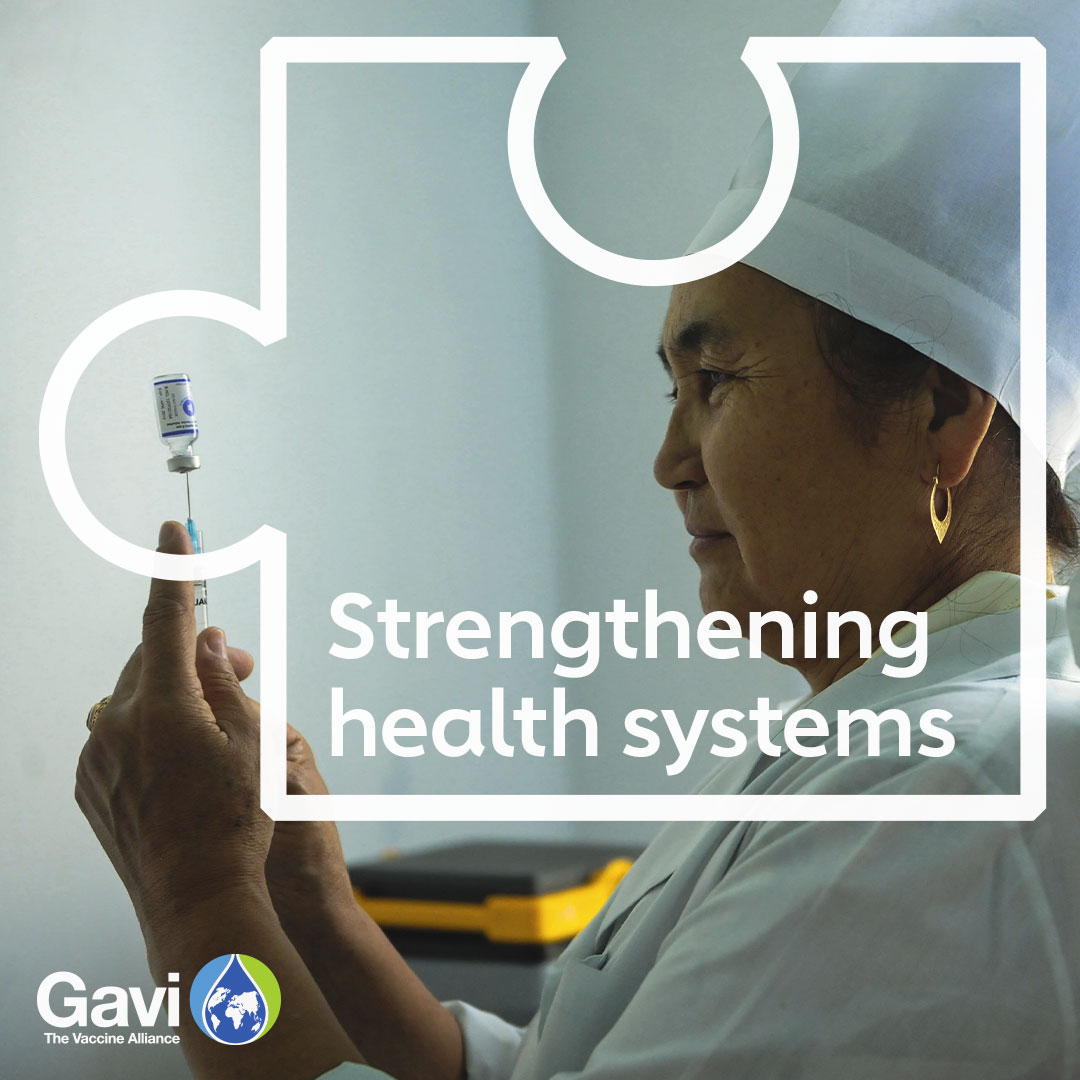
An Alliance to make vaccines work for all
Vaccines play a vital role in helping children prosper, finish their education and create a thriving workforce. Every child has the right to access life-saving vaccinations and primary health care. Honouring that right requires a coordinated effort with other organisations, governments and private sector partners to overcome barriers to immunisation and leave no child behind.
Around the world, COVID-19 has forced health workers and providers to put most of their energy towards treating patients infected with the disease. Furthermore, measures to limit physical contact and mitigate the spread of the virus pose new challenges for health workers to engage the public and to administer vaccines. At least 13.5 million people will miss out on vaccinations due to postponement of campaigns and interruptions in routine vaccinations, with millions more likely to follow.
In addition to Gavi’s immediate support for health systems in the countries where it is active, Gavi is also helping the development of COVID-19 vaccine candidates, as well as supporting efforts to manufacture, purchase and deliver vaccines to those who need them once they are available – which could be progressing faster than for any pathogen in history.
Thank you for joining us this World Immunization Week in celebration of the power of vaccines and our Alliance partners – and the frontline health workers, innovators and youth ambassadors making history to protect the next generation. As the world tackles a growing crisis, routine immunisation services are increasingly critical to avoid other outbreaks, reduce the strain on health systems and help protect the world from preventable diseases.

